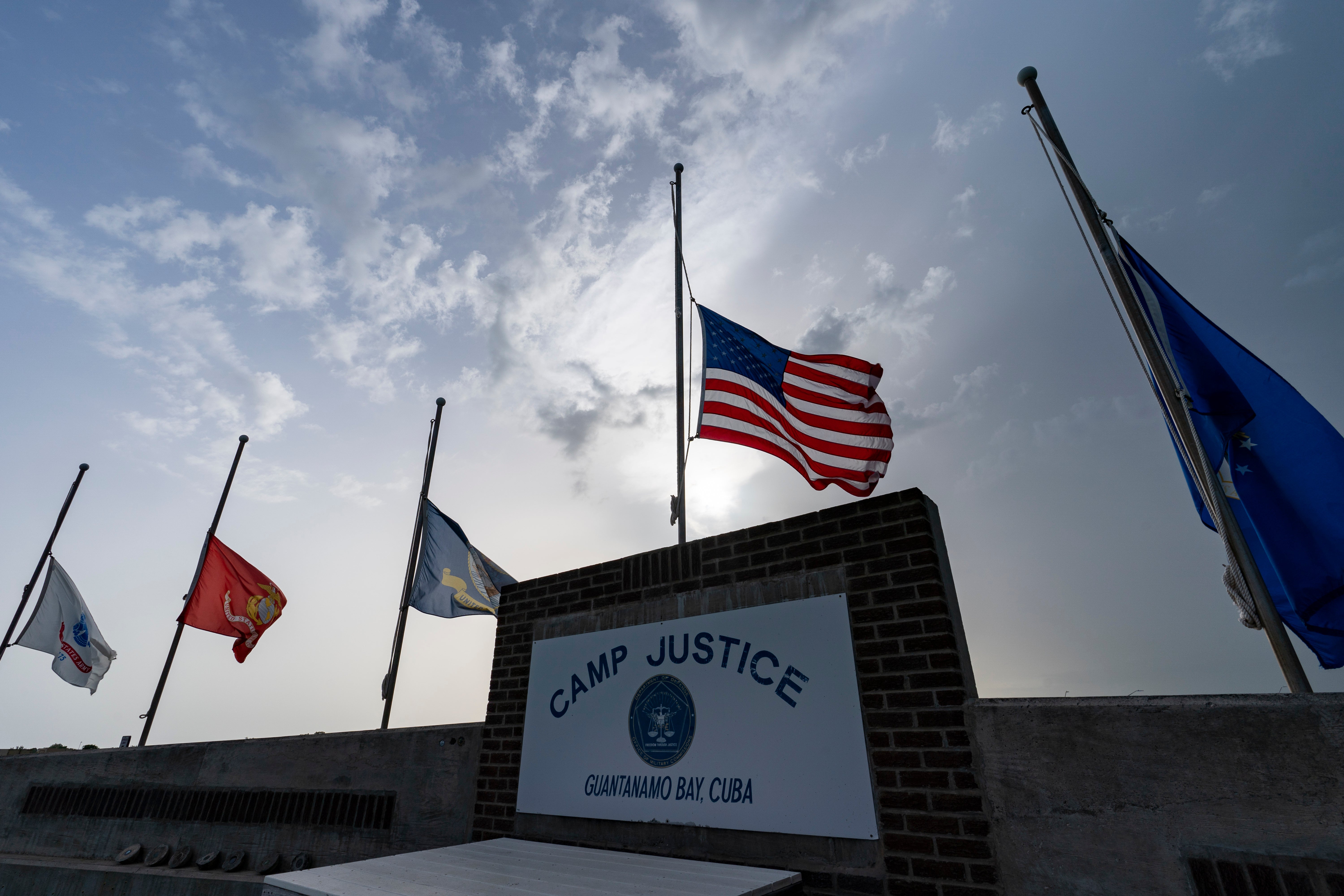US accused of stalling on deal to free Guantanamo prisoner
A former Maryland man held at the Guantanamo Bay detention center has languished in custody months after his scheduled release date despite his cooperation with authorities as part of a plea deal, according to a federal suit seeking his immediate release

Your support helps us to tell the story
From reproductive rights to climate change to Big Tech, The Independent is on the ground when the story is developing. Whether it's investigating the financials of Elon Musk's pro-Trump PAC or producing our latest documentary, 'The A Word', which shines a light on the American women fighting for reproductive rights, we know how important it is to parse out the facts from the messaging.
At such a critical moment in US history, we need reporters on the ground. Your donation allows us to keep sending journalists to speak to both sides of the story.
The Independent is trusted by Americans across the entire political spectrum. And unlike many other quality news outlets, we choose not to lock Americans out of our reporting and analysis with paywalls. We believe quality journalism should be available to everyone, paid for by those who can afford it.
Your support makes all the difference.A former Maryland man held at the Guantanamo Bay detention center has languished in custody months after his scheduled release despite cooperating with authorities as part of a plea deal, according to a federal suit that seeks his immediate release.
Majid Khan was due to be released March 1 after serving a 10-year-sentence and assisting authorities pursuing war crimes cases against others held at the U.S. base in Cuba, including the alleged mastermind of the Sept. 11, 2001, attacks.
His lawyers say in a habeas corpus petition filed Tuesday in federal court in Washington that the government has taken no apparent steps toward his release. They say that will make other prisoners less likely to strike similar deals that would help the Biden administration reduce the number of men held there and move close to eventually shuttering the facility.
“The failure to transfer Majid Khan is undermining those efforts to negotiate plea agreements in the remaining cases,” attorney Wells Dixon said.
Khan is one of the most significant figures among the 37 men still held at the U.S. base in Cuba. His testimony about the torture he endured during more than three years in clandestine CIA detention facilities was the first public accounting of the treatment by a prisoner and prompted seven of eight military officers serving as jurors at his sentencing to endorse a letter seeking clemency for him.
That letter is also believed to have contributed to ongoing efforts to negotiate a plea deal in the long-stalled prosecution of five Guantanamo prisoners charged with aiding and planning the Sept. 11 attacks, including alleged mastermind Khalid Shaikh Mohammad.
Khan, 42, is a citizen of Pakistan who spent much of his life in the U.S. His family was granted asylum in the country in 1996 and he graduated from high school in suburban Baltimore. He admitted to becoming a courier for al-Qaida and pleaded guilty in 2012 to conspiracy, murder and providing material support to terrorism in a deal that granted him credit for time served since his capture.
A senior Pentagon legal official known as the convening authority for military commissions, certified his sentence as completed in March.
Khan cannot return to Pakistan because he would be in danger as a cooperating witness against al-Qaida. It would be up to the State Department to negotiate an agreement with another country to accept him along with his wife and a daughter born after his capture.
“You have what appears to be a bureaucratic paralysis where nobody seems to be saying that Majid Khan needs to be detained but nobody is taking steps to transfer him,” Dixon said.
The State Department and Pentagon referred questions about Khan to the National Security Council, which had no immediate comment.
The White House has said the administration is committed to closing the detention center, a pledge made by President Barack Obama soon after he took office. That pledge was thwarted by Congress.
Since President Joe Biden took office, the U.S. has released three prisoners. About 20 others have been designated as eligible for release.
President Donald Trump, who opposed closing the detention center, released a single prisoner — a Saudi who, like Khan, reached a plea bargain and became a cooperating witness. At the time, lawyers monitored the situation closely to see what would happen, and whether the U.S. would honor the agreement. That is also happening now, according to James Connell, who represents Ammar al-Baluchi, one of the defendants in the 9/11 case.
“We are watching the administration's handling of the Khan case carefully,” Connell said.